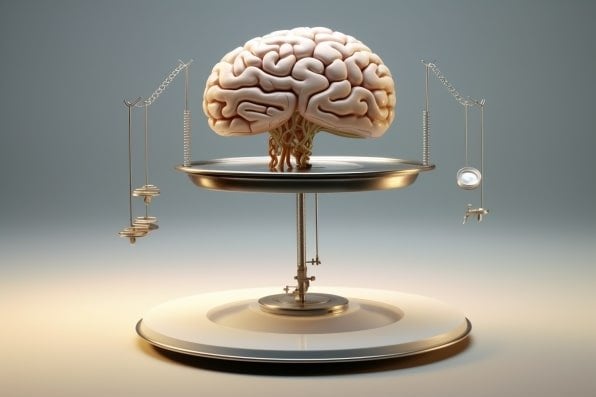A new discovery reveals that astrocytes, star-shaped cells in the brain, play a key role in regulating fat metabolism and obesity. These cells act on a cluster of neurons, known as the GABRA5 cluster, effectively acting as a “switch” for weight regulation.
The MAO-B enzyme in these astrocytes was identified as a target for obesity treatment, influencing GABA secretion and thus weight regulation.
KDS2010, a selective and reversible MAO-B inhibitor, successfully led to weight loss in obese mice without impacting their food intake, even while consuming a high-fat diet, and is now in Phase 1 clinical trials.



But where does all the excess energy go? You can’t cheat basic physics
You just don’t digest as much nor store as much calories. So your feces and urine, as well as exhalation.
It’s not cheating basic physics, there’s just a lot of misunderstanding about how weight works in biology. Cico is not what many people believe it to be.
Absorbed calories in spent calories out would be more accurate, but nobody wants to do the more complicated math.
And some processes can technically be calorie neutral and still affect weight (like say how much water we hold)
Believe it or not, what you swallow has almost nothing to do with your weight. The only place the body absorbs energy from food is in the intestines, and the brain controls that process.
The digestive tract is a tube, open at both ends, through which food passes. The process of extracting energy from that food is complex and highly tunable: the brain controls the production and secretion of hundreds of enzymes and other chemicals, as well as the physical action of the muscles lining the tube.
The ‘basic physics’ here begins at the intestinal wall, not the mouth.
“almost nothing”? That’s dramatic, and wrong.
I mean technically, if it’s a tube, the mouth is part of the basic physics brain process. As in, if you don’t eat it, it won’t be added to the calories. The decision to eat is a brain process, too.
We’ve got drugs that play with that decision.
Unless you don’t eat at all, the decision to eat is secondary to the decision to absorb energy from it.
For example, I’ve been eating a “healthy diet” with about the same amount of exercise, for the last 3 years: first it kept my weight steady, then I lost 70 pounds in 3 months, then gained 10.
The only difference: stress levels.
People have been congratulating me for
losing weightgetting stressed out of my mind to the point of almost going crazy and killing myself. Thanks, but I was better before.I hope you are doing better now.
It’s also easy easier to discriminate against far people if you can define it as a moral failure of just not putting food in your gob.
Unlike close people. Those are always bastards invading personal spaces.
I would believe it if I started gaining weight by just breathing. Also, no. Not the only place. Part of the alcohol consumed is absorbed through the stomach.
The brain controls pretty much everything, and this everything is highly tunable. I mean, how else would well adjusted people adapt to the highly complex lives they live as adults? With commercial pills?
I’m guessing the switch they’re discussing affects the tendency of the body to store excess energy instead of just passing it thru. That is: if you don’t pack it on, you push it out. If you know what I mean…
Time to invest in coffee.
This hasn’t worked for me.
The digestive process is much more complicated than basic physics. There are all kinds of processes happening, some of them not yet understood, that regulate your appetite, weight gain, energy, etc. It’s different in each individual and for each individual it can change through various external factors.
Since nobody else who answered you read the article:
Heat. They discovered a way to trigger the part of the brain that regulates heat production by brown fat tissue.
Nothing that could go wrong with raising body temp permanently…
Just in! Man takes too many weightloss pills, ends up inadvertently cooking his testes! Read all about it in Blabbity Fair!
And in a world that is getting hotter and hotter, nothing is more appealing than carrying your own furnace with you, wherever you go.
That’s kind of what DNP does. Side effects include death
That’s the bit they mentioned, anyway. It sounds like in this scenario they tried two different diets, and the higher-calorie one produced more body heating. I imagine appetite regulation would also play a part “in the wild”.
Thanks you! That makes a lot of sense
Down the toilet
https://slimemoldtimemold.com/2021/07/11/a-chemical-hunger-part-ii-current-theories-of-obesity-are-inadequate/ is a good analysis of why calories in calories out is both true and not a good model for how weight gain/loss works in people.
Look up nutrient bioavailability, which can vary between individuals.
The body can choose to absorb more or less (and the brain have no conscious control) by regulating absorption differently. This regulation is typically used to keep your levels of nutrients steady (some stuff we eat would be deadly in the doses we eat them if it weren’t for the fact that the body can simply dump most of the particular substance until we’re running low)